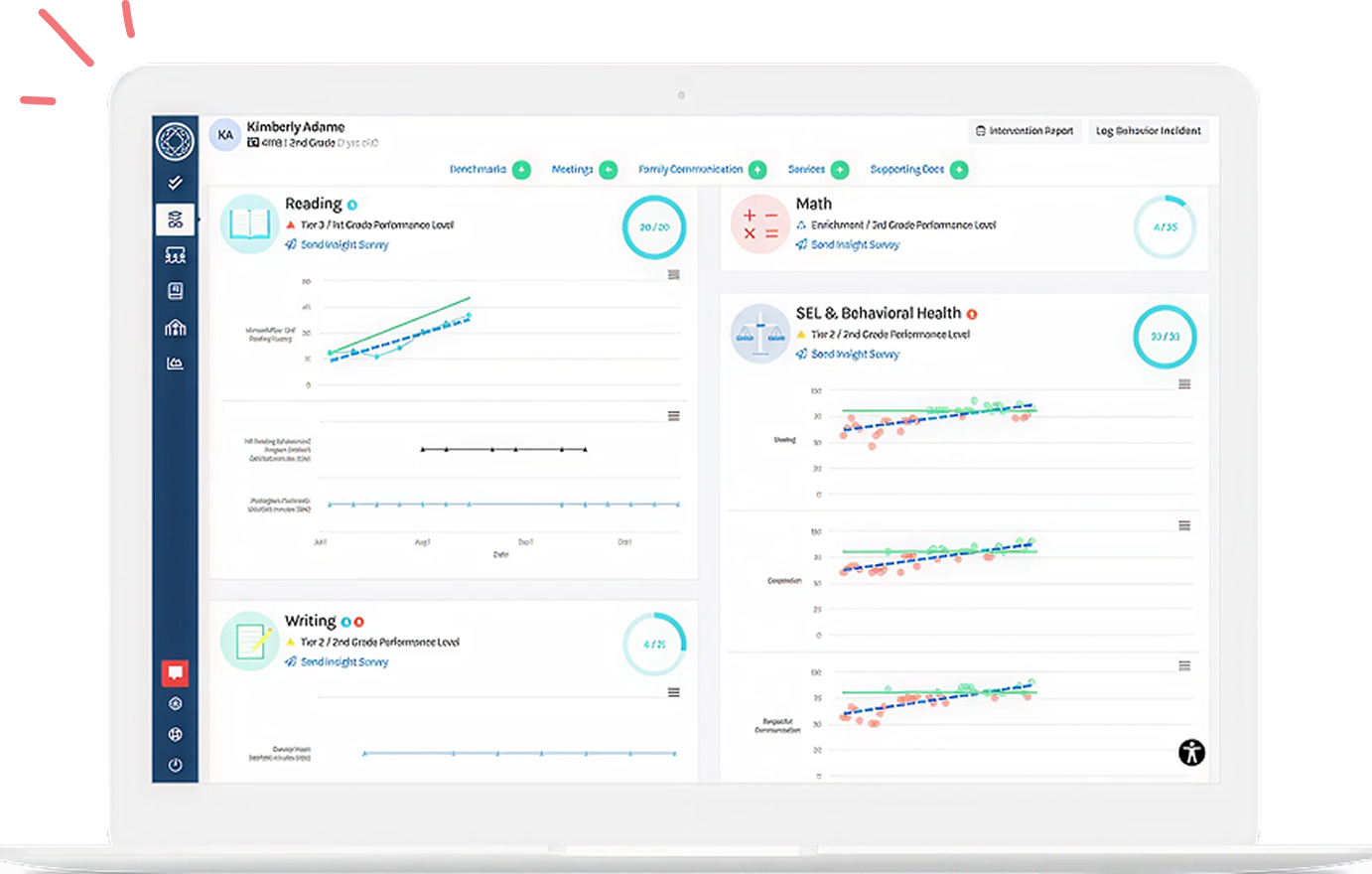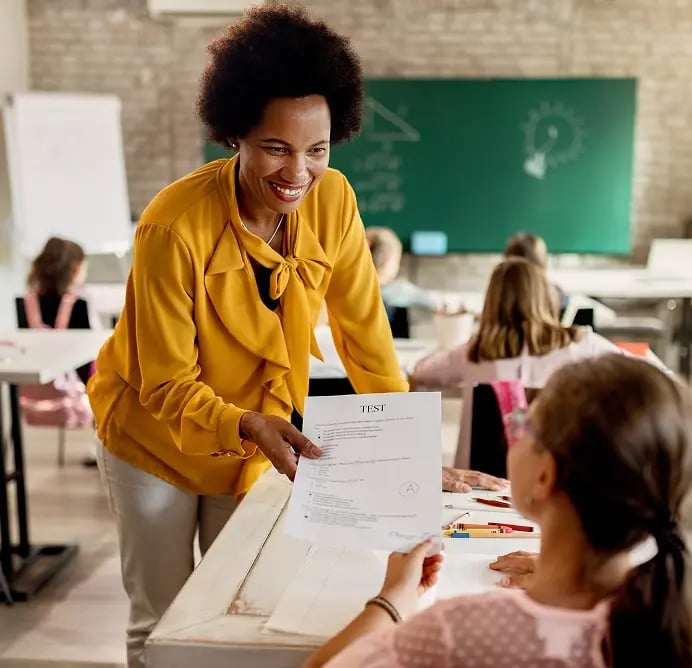As a lifelong educator, I have worked for decades with teachers and teacher candidates in pre-k through high school classrooms in both public and private schools. One constant for my teachers across the board, regardless of subject matter/specialty or grades taught — all consistently have experienced the “educational pendulum” swinging throughout their careers, and some may have even experienced the pendulum swing with multiple initiatives, new policies, etc. in a single year. In just this past year alone, teachers have experienced the shift from remote instruction to hybrid learning, and then back to in-person learning. It is no surprise that experiencing many shifts in the classroom can lead to fatigue, burnout, skepticism, and a feeling that whatever the change is, “it won’t last.”
Research has found that teachers make more minute-by-minute decisions than brain surgeons, and this can obviously be exhausting, especially when trying to keep up with new school initiatives (Watson, 2017). Unfortunately, due to this exhaustion, I believe that some vital processes such as MTSS/RTI run the risk of becoming miscategorized and put on the “just something else to do” list rather than recognized as a best practice for all students, and a model for all schools.
I first started working with my school district clients to guide and support the transition to an RTI model (Response to Intervention) after it was suggested within the Individuals with Disabilities Act issued in 2004. Up until this time, I had worked with teachers and administrators using the discrepancy model, which was a traditional method used to identify students challenged with disabilities through cognitive and academic achievement testing.
As my school partners worked to shift to RTI, we pivoted to focus on their student's ability to respond to the increased and consistent use of interventions in the classroom. This work encompassed a significant swing for educators and required teachers to look at the needs of students outside of assessing for potential disabilities as with the discrepancy model. New “student support teams” were established to identify students experiencing difficulties, and educators began to hone in on the importance of differentiating instruction to meet students' needs. This work continues today as I work with schools to facilitate the transition to MTSS (Multi-Tiered Supports System). This includes a focus on ensuring fidelity to a robust core curriculum, providing data-driven intervention that increases with intensity as needed, based upon frequently tracking progress monitoring data, supporting students with social/emotional/attendance needs, improving school culture, and leveraging community engagement.
|
The educational pendulum swinging back and forth, discussed above, can often be linked to moving to a new curriculum or frequently updating school processes. Ideas can shift about what works well during a certain period of time and head in a single direction, then later head back again. The swing back and forth creates a feeling that change is not permanent, and teachers may initially state something along the lines of, “I don’t have time for a discussion of transitioning to MTSS or anything else extra to do right now.” As a result, when I am working with teachers expressing this concern, we discuss how the tenets of MTSS/RTI are not just an “extra thing to do” and should be available for all students in all schools in perpetuity.
MTSS Tenents
Ensuring fidelity to core is not just something extra to do…
By taking the time to ensure that there is a robust core curriculum in place and maintaining fidelity to such curriculum, teachers can ensure they are consistently working to obtain results. If there is a lack of consistency with providing the core, it will be hard to understand if struggling students are immediately (or year-over-year) experiencing difficulties due to lack of exposure to content, or due to another issue.
Working to improve school culture is not just something extra to do...
A positive culture is one in which every employee and student are energized to try their best. This leads to employees and students feeling comfortable and open to learning, and safe in sharing thoughts and ideas.
|
Providing data-driven, robust intervention is not just something extra to do…
When teachers ensure the intervention they are providing is robust and data-driven, they have the peace of mind that the intervention is expected to yield results when matched appropriately to the student’s needs. Interventions that teachers can simply google and apply or find on Pinterest may look interesting but could waste valuable instructional time if it has not yielded proven results in the past. In addition, teachers can end up spending too long (or too little) time on an intervention’s impact that has not been previously measured.
What Can I Do if My Teachers Are Feeling Fatigue With Transitioning to MTSS/RTI?
- Build strong relationships with team members, and ensure expectations for a respectful work environment are in place. Provide room for questions to be asked, and concerns to be shared.
- Ensure MTSS/RTI procedures are clearly and succinctly communicated, and easily understood by all stakeholders. It is easy to get lost in “change fatigue” when information/processes are too verbose, and the importance of the initiative gets lost in excessive text, or too many meetings.
- Reiterate the reasons above for why the tenents of MTSS/RTI are not “just something extra to do.” Addressing all students' academic and social-emotional needs is critical now more than ever as we emerge from the coronavirus pandemic, and our students may have been impacted by personal trauma, zoom fatigue, pandemic fatigue as well as instructional loss. As educators, we must acknowledge that we can never go back to any pre-pandemic system that only looks at students with a singular focus. We must shift to embrace models such as MTSS/RTI in order to meet the academic and social-emotional needs of every single student in our student body. Our students deserve nothing less than this holistic approach.
Citations:
Watson, A. (2017, November). Goodbye, teacher tired: How to do fewer things, better. Retrieved April 26, 2021, from https://thecornerstoneforteachers.com/truth-for-teachers-podcast/goodbye-teacher-tired/
![[Guest Author] Deanne Rotfeld Levy, M.A.T.-avatar](https://www.branchingminds.com/hs-fs/hubfs/Team/Deanne%2070x70.png?width=82&height=82&name=Deanne%2070x70.png)
About the author
[Guest Author] Deanne Rotfeld Levy, M.A.T.
Deanne Rotfeld Levy is a consultant for Branching Minds regarding MTSS best practices. Deanne is also a University Supervisor at the National College of Education at National Louis University. Deanne previously served as Vice President of Customer Success for Discovery Education and was a Chicago Public Schools special education teacher and case manager. Deanne holds a Master of Arts in Teaching Special Education from National Louis University.

Your MTSS Transformation Starts Here
Enhance your MTSS process. Book a Branching Minds demo today.














.png?width=716&height=522&name=Top%205%20MTSS%20Implementation%20Tips%20for%20School%20and%20District%20Leaders%20Foundational%20Reading%20Skills%20in%20MTSS%20(preview).png)

.jpg?width=716&height=522&name=Summer-MTSS(preview).jpg)